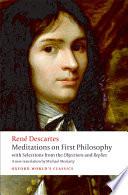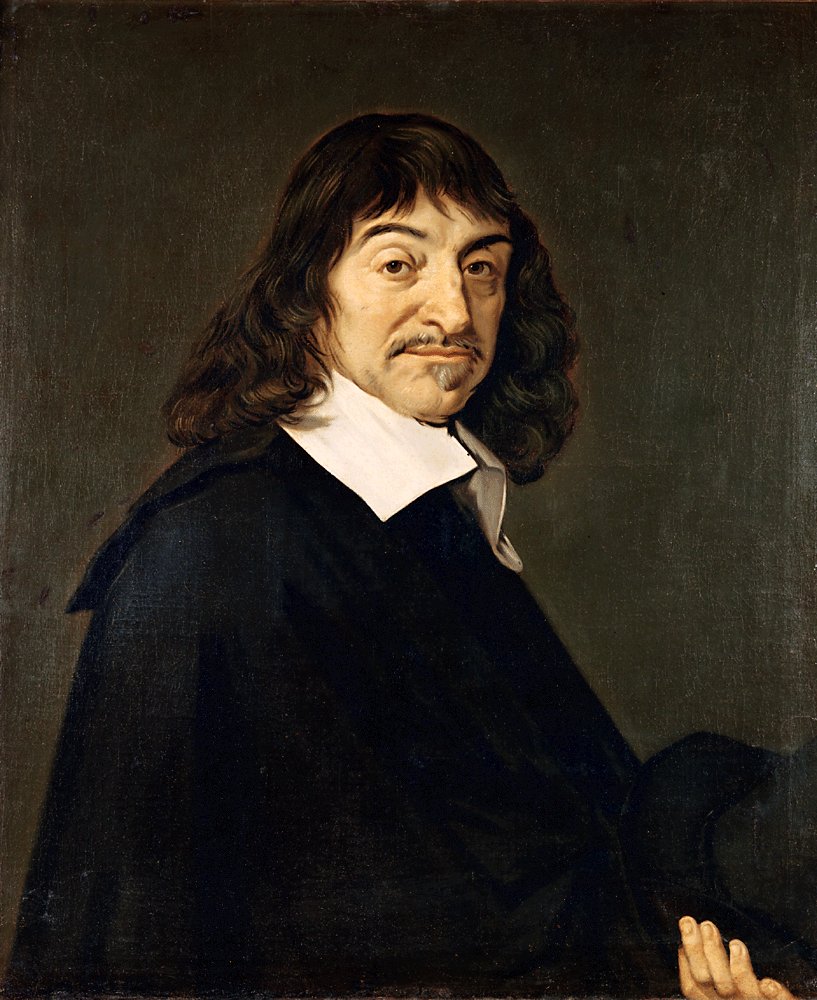Works
La Géométrie
René Descartes
Rules for the Direction of the Mind
René DescartesPrinciples of Philosophy
René DescartesDiscurso sobre o Método
René Descartes
Meditations on First Philosophy
René DescartesFamous René Descartes Quotes
“It is not enough to have a good mind. The main thing is to use it well.”
Variant: It is not enough to have a good mind; the main thing is to use it well.
Source: Discourse on Method
“Divide each difficulty into as many parts as is feasible and necessary to resolve it.”
Source: Discourse on Method
Je pense, donc je suis.
Le Discours de la Méthode (1637)
Variant: I think, therefore I am.
Original Latin: Veritatem inquirenti, semel in vita de omnibus, quantum fieri potest, esse dubitandum
Variant translation: If you would be a real seeker after truth, you must at least once in your life doubt, as far as possible, all things.
Principles of Philosophy (1644)
Variant: In order to seek truth, it is necessary once in the course of our life, to doubt, as far as possible, of all things.
René Descartes Quotes about the truth
Rules for the Direction of the Mind: X.379
As quoted in [Clarke, Desmond M., 2006, Descartes : a Biography, Cambridge Press, 67, ISBN 978-0-521-82301-2]
Rules for the Direction of the Mind: IV
René Descartes Quotes
Letter to Pierre Chanut (Nov. 1, 1646) as quoted by Amir Aczel, Descartes' Secret Notebook (2005) citing René Descartes: Correspondance avec Elizabeth et autres lettres (1989) ed., Jean-Marie and M. Beysaade, pp. 245-246.
Source: Discourse on Method (Rozprava o metodě)
Source: The Principles of Philosophy
Variant: ... it is a mark of prudence never to place our complete trust in those who have deceived us even once.
Source: Meditations on First Philosophy
“With me, everything turns into mathematics.”
Mais apud me omnia fiunt Mathematicè in Natura More closely translated as: but in my opinion, all things in nature occur mathematically. Note: "Mais" is French for "but" and the "but in my opinion" comes from the context of the original conversation. apud me omnia fiunt Mathematicè in Natura is in latin. Sometimes the Latin version is incorrectly quoted as Omnia apud me mathematica fiunt. Sources: Correspondence with Mersenne http://fr.wikisource.org/wiki/Page%3aDescartes_-_%C5%92uvres,_%C3%A9d._Adam_et_Tannery,_III.djvu/48 note for line 7 (1640), page 36, Die Wiener Zeit http://books.google.com/books?id=9Xh3fVZLCycC&pg=PA532&lpg=PA532&dq=%22Omnia+apud+me+mathematica+fiunt%22+original+zitat&source=bl&ots=CgQOrveRiM&sig=WFHwIK20r5vRZ66FwCaxo857LCU&hl=de&sa=X&ei=_Wf2UcHlJYbfsgaf1IHABg#v=onepage&q=%22Omnia%20apud%20me%20mathematica%20fiunt%22%20original%20zitat&f=false page 532 (2008); StackExchange Math Q/A Where did Descartes write... http://math.stackexchange.com/questions/454599/where-did-descartes-write-with-me-everything-turns-into-mathematics?noredirect=1#comment978229_454599
“I doubt, therefore I think, therefore I am.”
Cogito, ergo sum.
Variant: Dubito, ergo cogito, ergo sum.
(English: "I doubt, therefore I think, therefore I am")
Letter to Marin Mersenne (end of Feb., 1634) as quoted by Amir Aczel, Pendulum: Leon Foucault and the Triumph of Science (2003)
First Book
La Géométrie (1637)
Me tenant comme je suis, un pied dans un pays et l’autre en un autre, je trouve ma condition très heureuse, en ce qu’elle est libre.
Letter to Elisabeth of Bohemia, Princess Palatine (Paris, June/July 1648)
Rules for the Direction of the Mind in Key Philosophical Writings (1997), pp. 29-30 http://books.google.com/books?id=jjWPe-9NPoEC&pg=PA29
Letter to Marin Mersenne (1637) as quoted by D. E. Smith & M. L. Latham Tr. The Geometry of René Descartes (1925)
“With me, everything turns into mathematics.
More closely translated as: but in my opinion, all things in nature occur mathematically.”
Mais apud me omnia fiunt Mathematicè in Natura
""Mais"" is French for ""but"" and the ""but in my opinion"" comes from the context of the original conversation. apud me omnia fiunt Mathematicè in Natura is in latin.
Sometimes the Latin version is incorrectly quoted as Omnia apud me mathematica fiunt.
Sources: Correspondence with Mersenne http://fr.wikisource.org/wiki/Page%3aDescartes_-_%C5%92uvres,_%C3%A9d._Adam_et_Tannery,_III.djvu/48 note for line 7 (1640), page 36, Die Wiener Zeit http://books.google.com/books?id=9Xh3fVZLCycC&pg=PA532&lpg=PA532&dq=%22Omnia+apud+me+mathematica+fiunt%22+original+zitat&source=bl&ots=CgQOrveRiM&sig=WFHwIK20r5vRZ66FwCaxo857LCU&hl=de&sa=X&ei=_Wf2UcHlJYbfsgaf1IHABg#v=onepage&q=%22Omnia%20apud%20me%20mathematica%20fiunt%22%20original%20zitat&f=false page 532 (2008); StackExchange Math Q/A Where did Descartes write... http://math.stackexchange.com/questions/454599/where-did-descartes-write-with-me-everything-turns-into-mathematics?noredirect=1#comment978229_454599
Second Book
La Géométrie (1637)
Letter to Marin Mersenne (July 27, 1638) as quoted by Florian Cajori, A History of Mathematics (1893) letter dated in The Philosophical Writings of Descartes Vol. 3, The Correspondence (1991) ed. John Cottingham, Robert Stoothoff, Dugald Murdoch
“Discourse on the Method of Rightly Conducting the Reason, and Seeking Truth in the Sciences”
Le Discours de la Méthode (1637)
